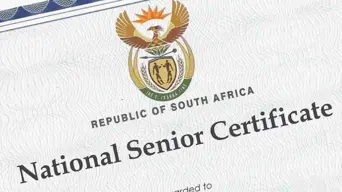IR unhappy about court judgement giving DBE greenlight to publish matric results
The IR is adamant that the decision of the Gauteng High Court in Pretoria does not make the publication of results lawful, as the merits of the matter were not ventilated.

FILE: A National Senior Certificate. Picture: Careers Portal
JOHANNESBURG - The Information Regulator (IR) has expressed disappointment with the judgment of the Gauteng High Court in Pretoria.
This follows the court's dismissal of its urgent bid to interdict the Department of Basic Education from publishing the 2024 matric results.
The regulator has emphasised that its challenge against the department was about compliance and that the order of the same High Court's division had no bearing on it, as it did not decide on the lawfulness of the publication of matric results.
The matric results are expected to be published next week.
ALSO READ:
- Matric results: IR insists enforcement notice, orders against DBE still effective
- Court finds IR did not place interests of pupils at heart of application to halt publishing of matric results
- Matric results: IR argues DBE must comply with enforcement notice until set aside by appeal
The IR is adamant that the decision of the Gauteng High Court in Pretoria does not make the publication of results lawful, as the merits of the matter were not ventilated.
Similarly, it added that the order of the court in 2022 authorising the publication of matric results did not prevent it from conducting its statutory obligations as per the Protection of Personal Information (POPI) Act.
The regulator’s executive for education and communications, Mukelani Dimba, explained: “When the order is issued, does it mean therefore that the regulator can no longer exercise its duties and responsibilities in terms of POPI Act, which includes conducting its own initiative assessment, which is what we did?”
If the publication of the results is not lawful, then it follows that the department will be found guilty of non-compliance by the regulator, which may cause further friction between the two parties.
However, the regulator maintained that only a successful appeal can suspend its orders.